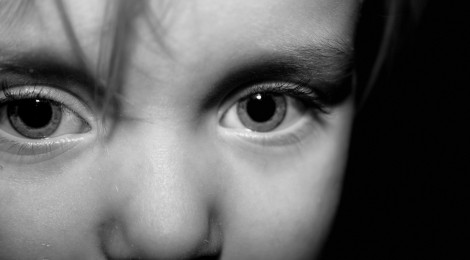
Raising a Child with Autism: Parental Feelings of Loss
An acquaintance of mine recently told me about her son diagnosed with autism. He is non-verbal, has difficulty understanding social skills, displays repetitive behavior and can be aggressive at times. Concerned about his well-being and burdened by the challenges posed by his disability, she is struggling. She, like many others who have children with autism, has found it difficult coping with the stress of raising a child with special needs.
Autism is characterized by deficits in communication and social skills and stereotypic or ritualistic behaviors. Depending on their level of functioning, children with autism may require additional support in completing basic tasks such as bathing, eating, dressing and toileting, tasks a typical child would be able to do independently.
Kate Davis and Susana Gavidia-Payne, researchers at the Royal Melbourne Institute of Technology reported that factors such as a lack of financial resources, social support and accessible services also significantly increases stress in these parents.
Upon discovery of their child’s diagnosis, parents undergo a grieving process over the loss of their “typical” child. The stages can be similar to the grieving process seen among parents who face the death of a child and may consist of feelings of sadness, depression and hopelessness. Unfortunately for many parents the process is ongoing, with wounds being reopened with each missed milestone.
First introduced in the 1960’s by Simon Olshansky, rehabilitation counselor and researcher, chronic sorrow affects a large number of parents of children with disabilities. And failure to reach the “acceptance” phase of the grieving process, according to author and psychologist Elizabeth Bruce, renders many parents struggling indefinitely with their child’s condition.
Difficulty accepting the child’s disability is only worsened by limited understanding of the causes of autism. Although intensive behavioral intervention is an evidence-based treatment, autism affects each individual differently resulting in high levels of variance in outcomes. Lack of consistency in prognosis and the limited promise of cure may further amplify the stress levels experienced by parents.
Programs designed to help parents are few and far between with most resources for autism spent on treatment for the child.
Psychologists Colin Pottie and Kathleen Ingram from Virginia Commonwealth University researched the effectiveness of various coping strategies used by parents of children with autism, and found that the type of coping strategy employed by parents greatly influences their stress levels.
Parents who are not provided with professional help utilize a number of strategies to reduce stress, some of which may actually exacerbate the problem. Richard Twoy, a nurse practitioner from San Jose State University reports that social support is the most powerful coping strategy used by parents of children with autism. Many parents do not realize this, and limit their level of contact with community members or family as they try to cope with stress and grief.
In psychological journals, researchers classify coping as either active or passive/avoidant. Active coping focuses on changing the way one thinks about the stressor or engaging in behaviors to deal with the pain. Passive or avoidant coping involves using denial or distraction to avoid experiencing negative emotions.
Coping strategies used by parents of children with autism change and evolve over time depending on changes in the child’s needs, modification of services and transformation of societal perceptions surrounding disabilities. Numerous studies have shown that those who use active coping strategies are more likely to get to the acceptance stage of grief.
Parent education and training results in tremendous improvement in children’s social and communication skills which may result in decreased parental stress, but it is not guaranteed. Even with improvements in the child’s behavior, many parents are still left trying to manage the grief that accompanies learning their child has autism.
The Canadian government offers various programs and services designed specifically for children with disabilities through the ministry of children and youth services. Unfortunately, few, if any, of these programs provide counseling for parents or education about the stages of grief related to having a child with a disability.
Raising a child with a disability can be very stressful. Coupled with a lack of support and education about the grieving process, many parents are left overwhelmed. Many people don’t realize that parents of a child with a disability are still dealing with loss and need help.
-Fareena Shabbir, Contributing Writer
If you have a child with autism and require information, please click on one of the following links.
http://www.toronto.ca/children/specialneeds/specialneeds_families.htm
http://ckc.tcf.ca/org/centennial-infant-and-child-centre-foundation
http://www.torontoccac.com/child.htm
http://www.autism-advocacy.org/
http://www.children.gov.on.ca/htdocs/English/topics/specialneeds/professionals.aspx




I spent my son’s whole life grieving his losses only to have those losses multiplied when he passed away unexpectedly. A number of people expressed their relief and happiness for us when our son died knowing that we would no longer be responsible for his overwhelming needs. That was two years ago. I still grieve his life, I still grieve his death. No one understands.